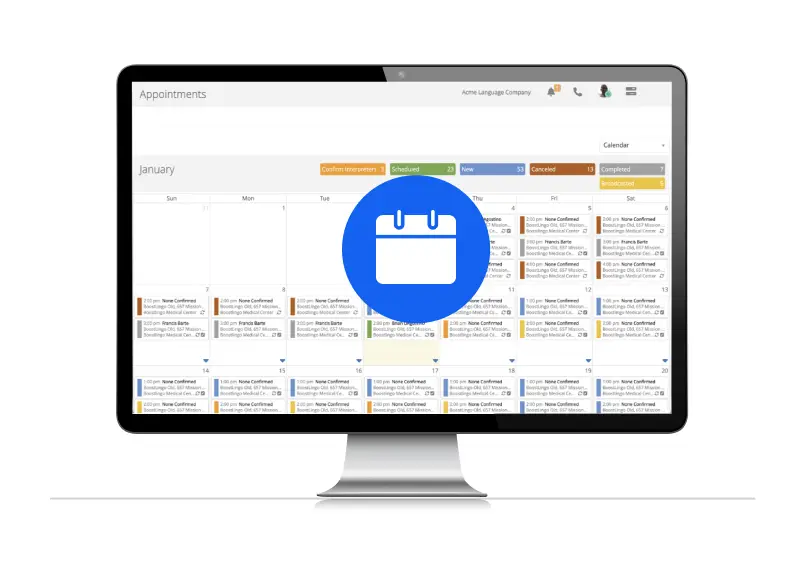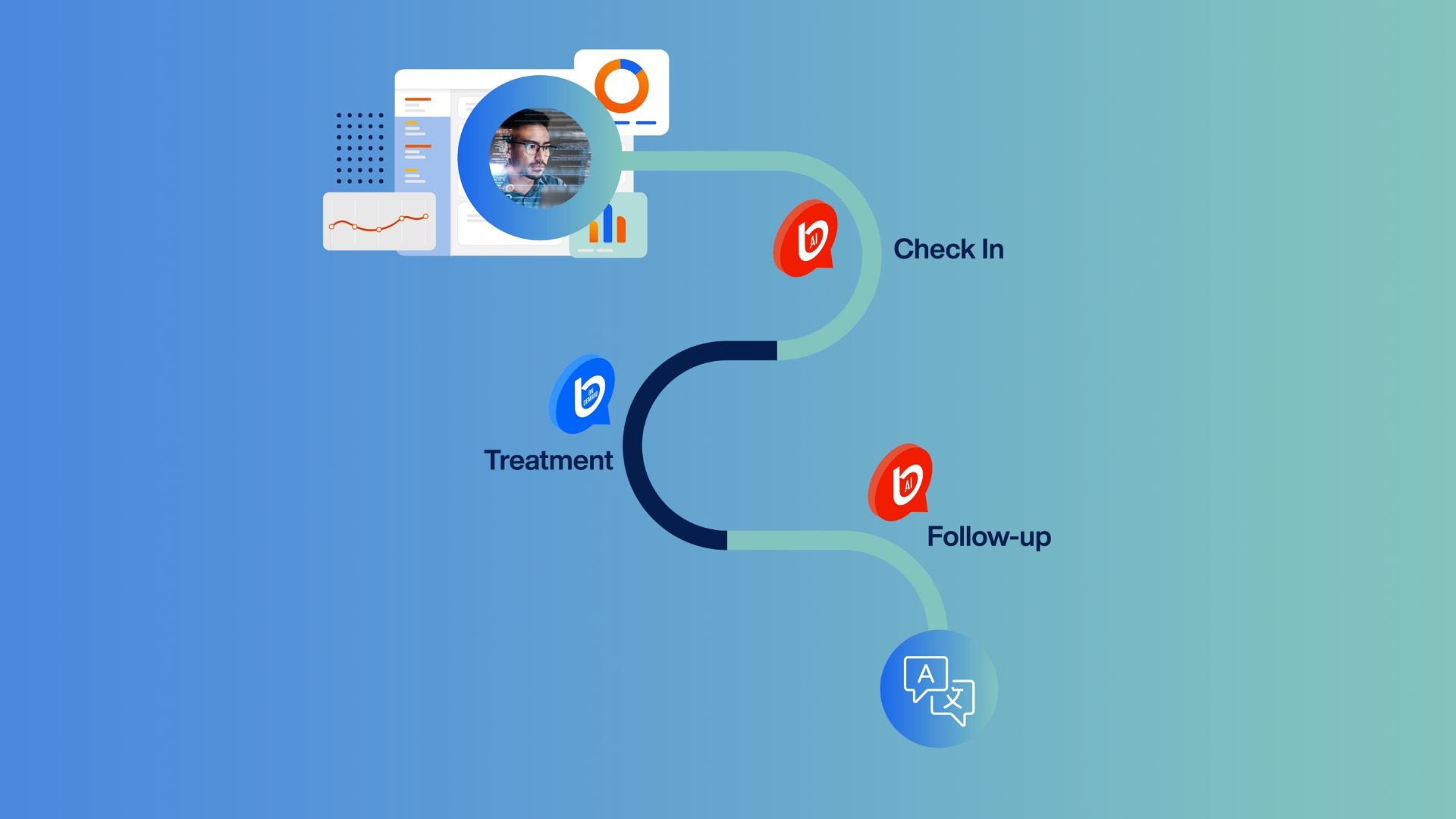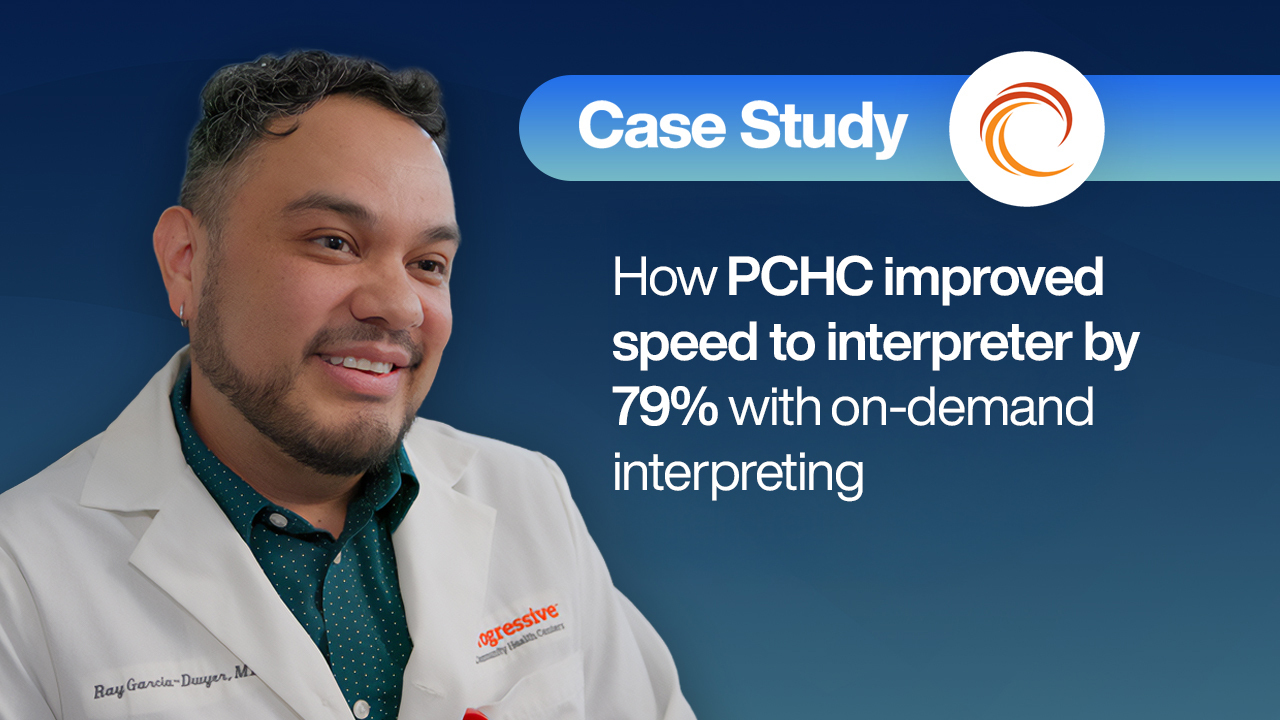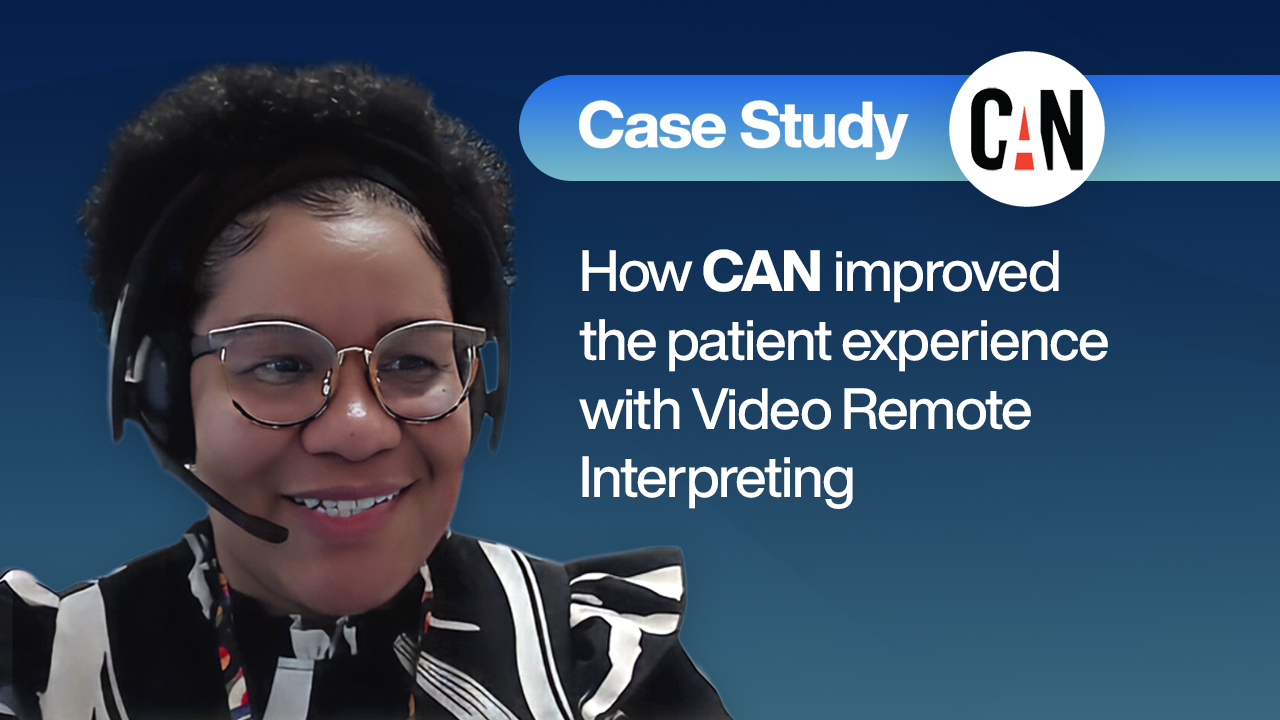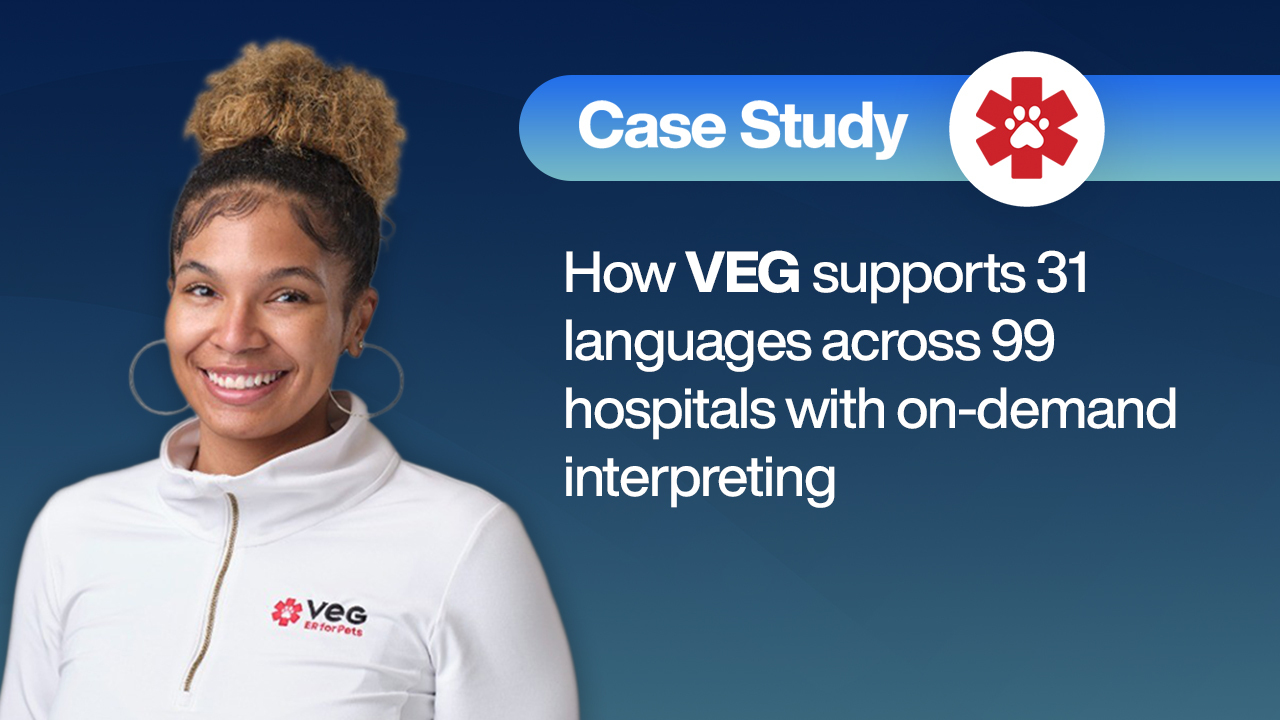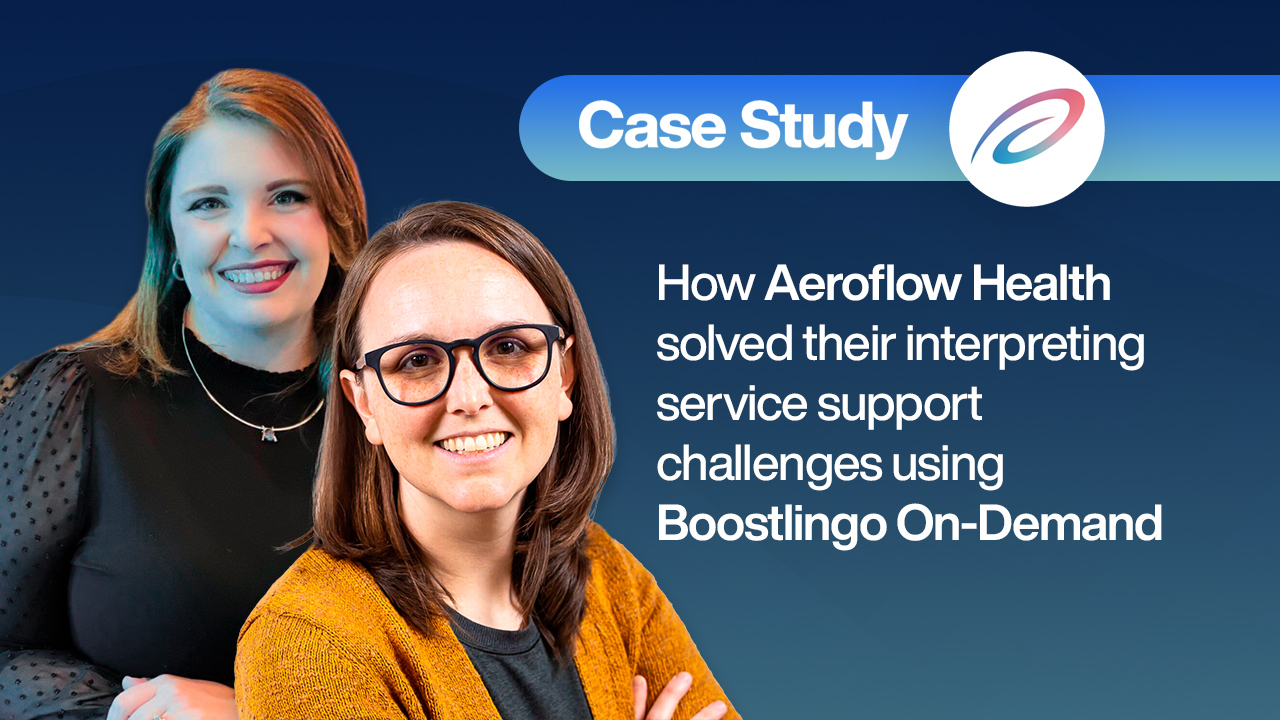Medical Interpreter Services and Management System
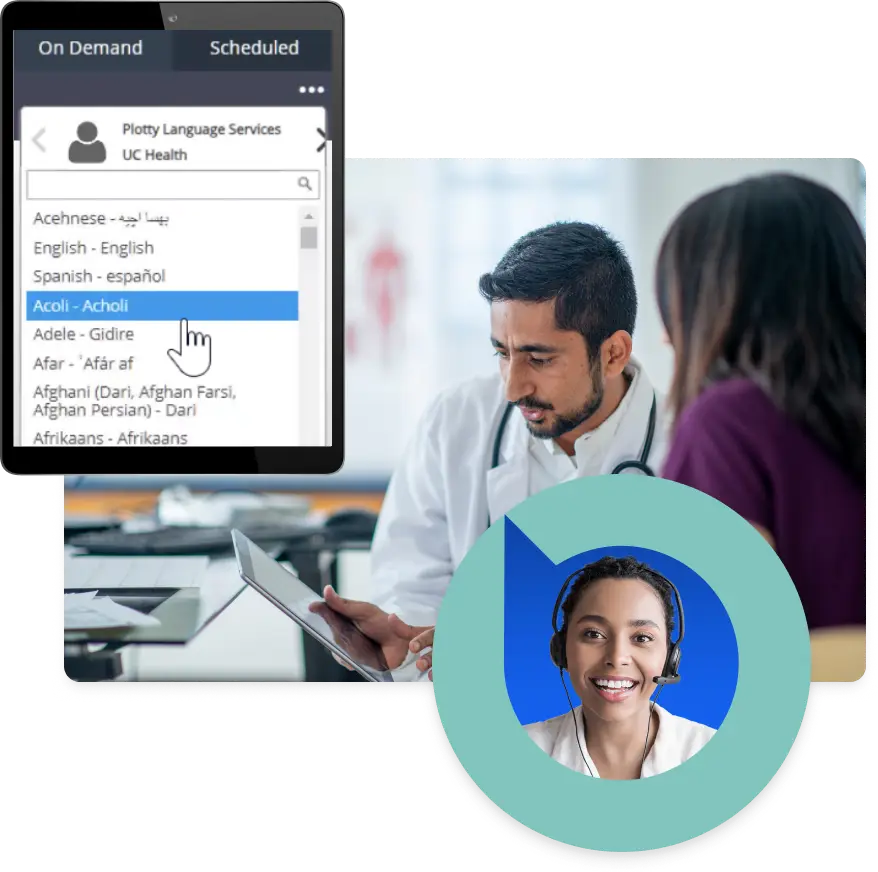
What best describes you?
Boostlingo helps your organization meet the language needs for your community through the highest quality video and over the phone interpretation. Schedule ahead of time or access interpreters on demand. Other features include:
- Access to 17,000 interpreters global for 300 languages Connect times averaging seconds, not minutes
- Qualified legal, medical, and educational interpreters
- Easy to use application that works on any device
- Boostlingo is a monthly subscription with the best per-minute rates in the business and more!
I Need Interpretation Services
Boostlingo makes interpretation technology that helps language service providers scale their business instantly.
- Schedule your interpreters & broadcast interpretation requests to your entire network
- Customize reports for business analysis
- Process expenses, billing, and invoicing in one program
- Gain access to 17,000 interpreters for 300 languages overnight with the Boostlingo Professional Interpreter Network
- Use a white label platform for your clients to login for virtual calls
And more! Fill out a quote form today.
I am a Language Service Provider
Boostlingo Events is a multilingual web platform built to assist you in reaching your target audience in any language. With Boostlingo Events, your team can simplify the process of adding interpreters to any of your events.
Boostlingo Events can provide remote simultaneous interpretation services for virtual and hybrid meetings, events, conferences, trainings and more. Through our Connect integrations, Boostlingo Events can be used independently or easily integrated into Zoom, Microsoft Teams, and other platforms
I Need Event/Conference Interpreting
Boostlingo does not hire interpreters.
We often refer qualified interpreter information to Boostlingo partners who have the option to reach out to anyone who fills out a form. However… Boostlingo cannot guarantee that you will be contacted by either party.I'm an Interpreter
Interpreting Technology for Healthcare
Learn about the main Boostlingo products for healthcare, including on-demand interpreting, an interpretation management system, and a remote simultaneous interpreting platform. One platform for language services.
Provide the Best Possible Care Regardless of Language
Communication is essential to delivering care. With over 25.7 million limited English proficient (LEP) individuals and 11 million Deaf or Hard of Hearing (D/HoH) people in the U.S., don’t let language barriers stop you. Our technology lowers the barriers to language services and reduces the administrative burden on your team.
On-Demand Interpreting
Interpretation Management
Integrate onsite and remote interpreter services. Manage interpreter scheduling, communications, analytics, and billing in one place.
Translation Services
Your Partner for All-in-One Language Support
Improve Quality of Care
Cost Savings for Language Access
By switching to Boostlingo On-Demand’s over-the-phone and video remote interpreting services, Goshen Health saved $250,000 annually.
Improve Speed to Care
With Boostlingo’s average interpreter connection time of 13 seconds, Northern Nevada Hopes could increase speed to care and maximize patient care time for their 20-minute appointments.
Simplify Interpreter Scheduling
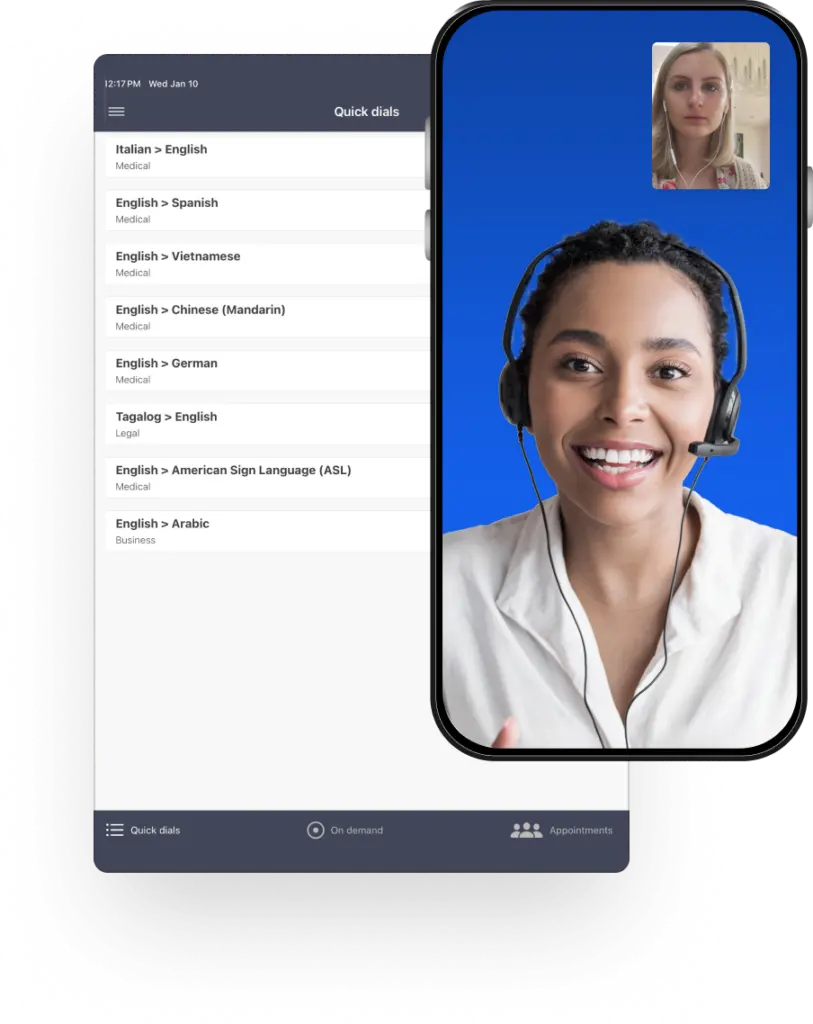
Boostlingo has been very time efficient connecting our patients to an interpreter. It’s user friendly, easy to access, & opens a world of potential.
Industries Best On-Demand Interpretation for Healthcare
Provide high-quality care with 24/7 medical interpretation
Reach the top medical interpreters in seconds, not minutes. By reducing the time to connect to an interpreter, you can begin treatment immediately with your patient. Our medical interpreters provide support in over 300 languages and are required to have at least 40 hours of medical terminology training as well as at least 3 years’ experience in medical interpreting. Learn more about telehealth and pharmaceutical interpreting as well!
Support the Whole Team
Support all stakeholders using a single login for scheduling language support services, connecting with healthcare interpreters, and obtaining reporting for billing and invoicing. Boostlingo On-Demand is easy-to-use and doesn’t require hours of training before your medical staff begins multilingual communication with their patients.
Device Agnostic
Access our app from any device and empower your medical staff to respond to patient needs. Can’t bring a computer into the room with you? Boostlingo has direct dial, smart-device, and tablet-ready options that can be customized to integrate with your current technology.
Stay HIPAA and ACA Compliant
Boostlingo healthcare interpreters regularly maintain their HIPAA compliance certificates to ensure they are up to date. Nationwide, teams are also ACA compliant and ready to provide language support wherever you need them. The Boostlingo platform applies the latest and highest levels in patient security and privacy, including SOC 2 Type II. You can be confident that your language services are meeting current and future healthcare regulatory compliance standards.
Speed to Care
Support speed to care with the industry's fastest response times across all on-demand languages in 30 seconds or less.
Quality Language Interpreters
Access to medically qualified interpreters with 3+ years' experience and up-to-date annual HIPAA certification.
Easy-to-Use App
Easy language access for any user. Device agnostic, with multiple access points: phone, web apps, and mobile devices.
300 Languages & ASL
Ensure every request is filled with access to 17,000+ interpreters speaking more than 300 languages including ASL.
Buyers Guide to Finding an On-Demand Interpretation Partner
This free ebook explores why on-demand interpretation is an essential tool for compliance and serving diverse communities and prepares you to evaluate potential partners.
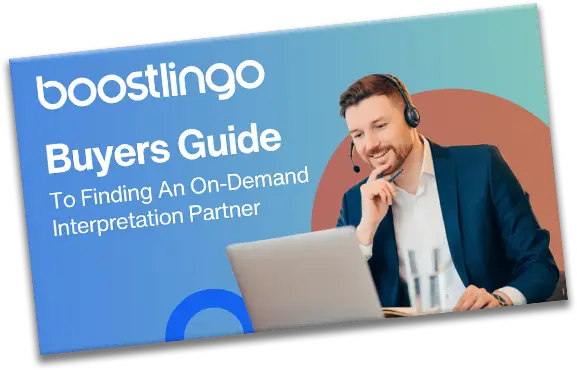
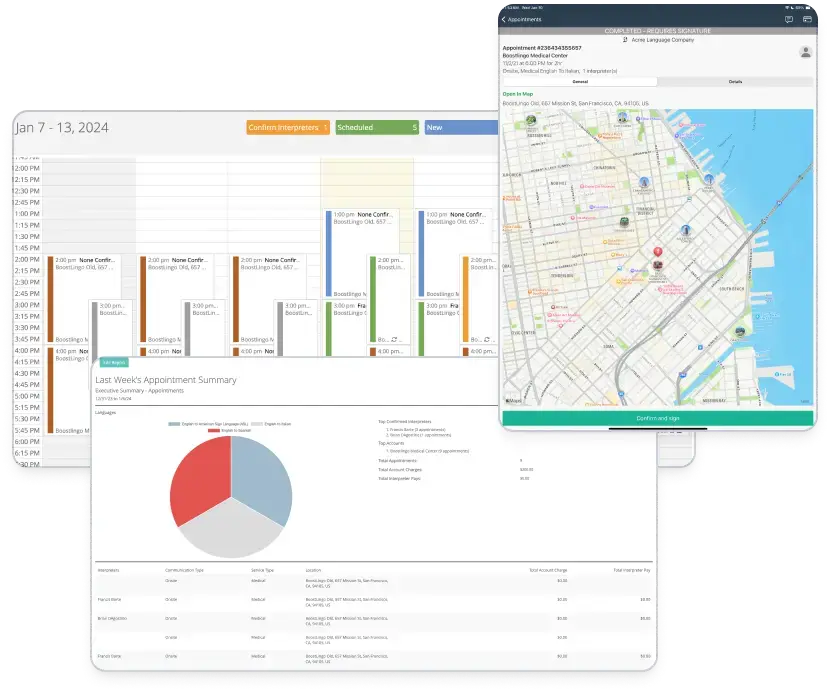
We’ve had such positive feedback from our staff and our patients. We’ve also saved half of what we were paying with our previous company.
Interpreter Management System for Hospitals
The current landscape
With most healthcare systems, medical interpretation is provided through a patchwork of staff and contract interpreters, manual scheduling systems, and inefficient procedures. There are too many portals, logins, and workflows for your team to be efficient when scheduling language support.
Integrate and automate interpreter services
Our interpretation management system allows you to integrate onsite and remote interpreter services and automate your program across multiple locations, clinics, and external language service providers. Simplify interpreter scheduling, data management, and vendor coordination when working with staff and contract interpreters.
All-in-one appointment management
With our all-in-one software, you can manage onsite appointments, plan virtual follow-ups, and add over-the-phone interpreting and video remote interpreting options when they make sense. Our IMS also includes intelligent routing that will ensure you schedule the right resource and optimize interpreter time and efficiency.
A single platform for interpretation
Boostlingo’s interpretation management system has a unified portal where your staff can schedule every appointment. Also, all your separate interpretation sources can receive notifications for onsite and virtual appointments. Save time and money with a simplified workstream for your administrative staff.
Interpretation Management System for Healthcare
Kristy Seiber, VP of Sales at Boostlingo, shares how health systems can manage all interpretation resources, systems, and processes with one platform, Boostlingo IMS.
Unified Approach
Simplify and automate day-to-day coordination, management, and delivery of interpretation services all on one platform.
Maximize Utilization
Prioritize routing to your staff interpreters while having a fail-safe backup to a vast network of qualified interpreters.
Simplify Scheduling
Increase productivity by automating scheduling and workflows of interpretation services for onsite and remote sessions.
Risk & Compliance
Boostlingo's HIPAA and SOC2 Type II certifications keep your healthcare organization’s data secure.
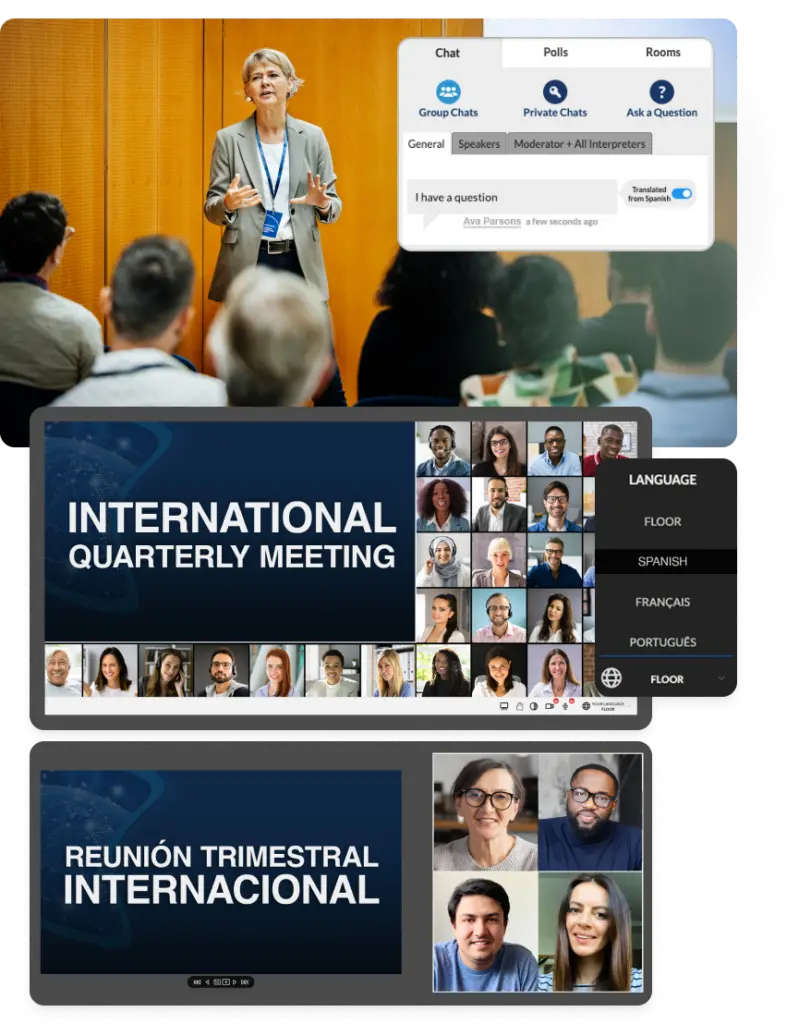
126 sessions, with 29 interpreters from 8 countries all streamed to YouTube with Boostlingo Events. And the world's first live streamed vasectomy.
Simultaneous Interpretation for Healthcare
As healthcare providers extend coordination and collaboration beyond direct patient care, enabling language access across community outreach events becomes crucial. These events encompass health education, support groups, and community programs. Promoting healthy practices and disseminating knowledge within the diverse communities you serve directly impacts patient outcomes. With ever-growing diverse populations, healthcare organizations must incorporate language services into all programs and services offered.
For community and outreach events, remote simultaneous interpreting is essential. Unlike on-demand over-the-phone interpretation (OPI) and video remote interpreting (VRI), which typically utilize consecutive interpreting, simultaneous interpreting facilitates continuous interpretation without disruptions.
In simultaneous interpreting, the interpreter converts the speaker’s message from one language to another concurrently, as the speaker is talking. This enables a seamless interpretive experience, ensuring all attendees receive fully accessible and individualized information in their language preference simultaneously, without pauses or lags. Simultaneous interpreting is the ideal solution for providing equal language access to health education, support groups, and outreach initiatives within multilingual communities.
Patient Engagement
Studies show that language access improves patient satisfaction, participation in preventative services, and engagement.
Community Outreach
Support 1-to-many community health education events or seminars with simultaneous interpretation.
Care Compliance
Improve patients’ commitment to treatment plans by removing language barriers across the entire care continuum.
Equitable Care
Connecting all patients without language barriers into all programs and services.
Healthcare Resources
Watch How Health Systems Save 20% with Boostlingo
Goshen Health transformed their interpreter services program and saved $250,000/year.
Expand Language Access for Healthcare Patients
Over 25.7 million people are considered Limited English Proficient (LEP) in the United States. Language barriers in healthcare create miscommunication between medical professionals, patients, and the families they serve. These communication barriers create disparities in access and outcomes to high-quality healthcare.
97% of physicians in the U.S. encounter patients with English comprehension challenges, yet only 40% of hospitals offer professional interpreters.
A study conducted by the National Institutes of Health (NIH) found that language barriers interfere with treatment plans and the use of preventative and screening services. These barriers delay access to timely care, cause poor chronic disease management, and ultimately result in poor health outcomes.
Boostlingo technology and services improve health equity through language access by bridging communication gaps and enhancing the patient experience. Language services accessed through Boostlingo are provided accurately, effectively, and securely. Healthcare is an always-on service, and providing access to interpretation should be as well.
We deliver professional interpreter services tailored for both telehealth providers and pharmaceutical organizations. Whether you’re conducting virtual patient consultations or navigating multilingual compliance in clinical trials, our certified interpreters support over 300 languages—ensuring accuracy, privacy, and real-time communication. From medication instructions to clinical interviews, we make language barriers invisible in digital healthcare and pharma workflows.
interpreters
Boostlingo Hub: Expand Language Access
Our network of healthcare interpreters is a valuable tool to overcome language barriers. With our fail-safe network of over 17,000 qualified interpreters, including medical and sign language interpreters, we deliver interpretation in over 300 languages.
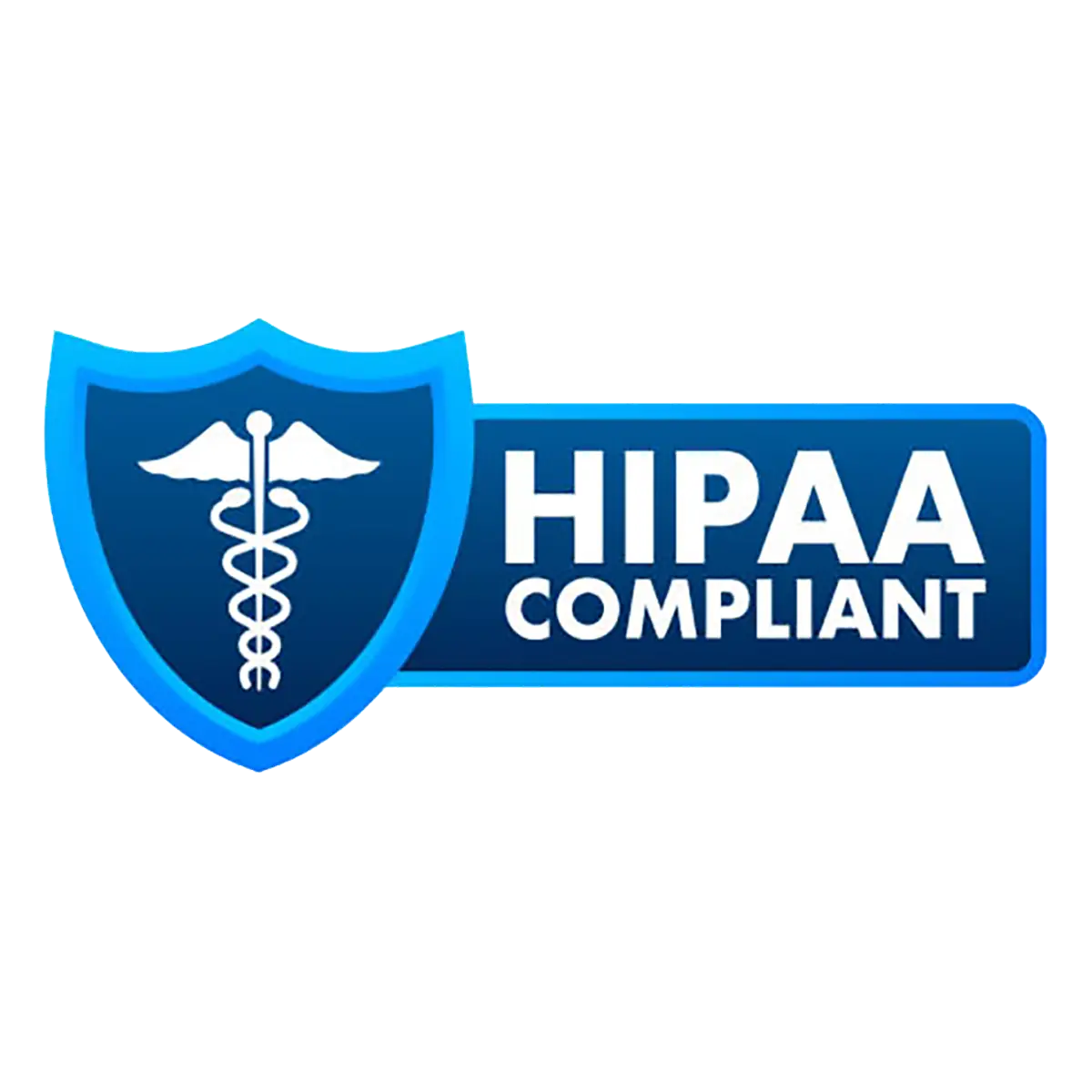
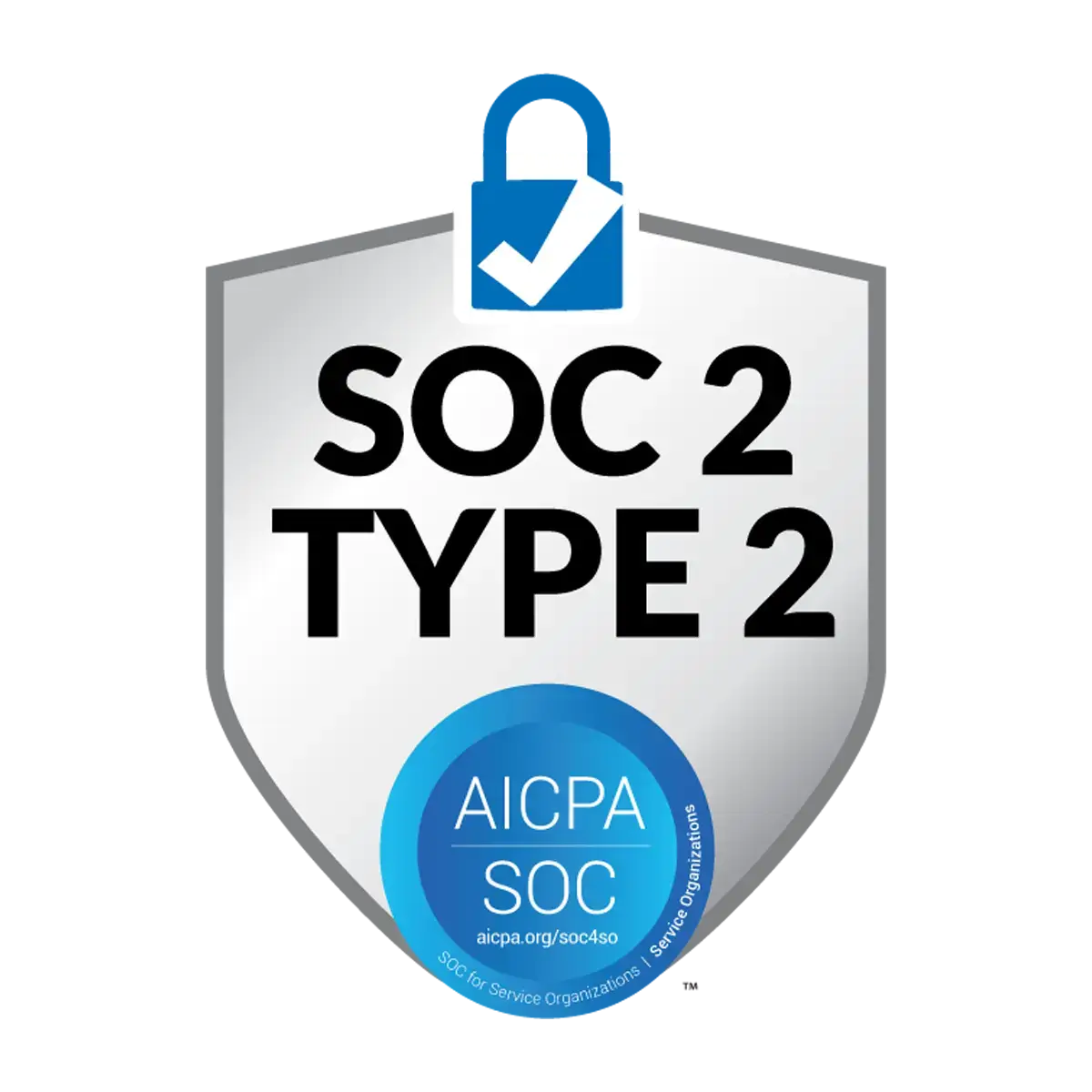

Risk & Compliance Covered with Our Solutions
Healthcare organizations often face evolving compliance and security risks. At Boostlingo, we understand the importance of supporting risk-management initiatives. Our technology is SOC 2 Type II certified, giving peace of mind that your data is processed and stored with the highest safety standards. Our team is dedicated to staying current with the ever-changing rules and regulations to help support care delivery.
Quality is top of mind for our healthcare partners, in addition to the minimum interpreter requirements, our pool of medically qualified interpreters possess annual HIPAA-compliance training, proof medical terminology training, and a minimum of 3 years of experience in medical interpreting.
Brattleboro Hospital
Gina Pattinson, Director of Marketing
Orthopedic Institute
Elena, Director of Compliance
Brattleboro Hospital
Christina, Manager of Patient Services
Northern Nevada HOPES
Jerry Trigueros, VP of Patient Services
Maven Language Solutions
Chris Evans, Executive Director of Ops
Healthcare Interpreting Report 2025
Boostlingo surveyed 277 clinicians, administrators, and executives to uncover where language-access programs excel and where they still break down. This 42-page report delivers the numbers, stories, and quick wins you can act on today.

Boostlingo On-Demand OPI & VRI Integrations:
Boostlingo helps your organization meet the language needs for your community or clients through an extensive list of integrations. We currently integrate with Zoom, Cisco, Webex, Microsoft Teams for interpretation delivery over the phone and via video. We also support the QuickBooks billing platform and Stripe.
Related Case Studies
See how Boostlingo customers around the world are driving growth with interpretation, translation, interpreter management services.
Progressive Community Health Centers
CAN Community Health
Veterinary Emergency Group
Aeroflow Health
Healthcare Interpretation FAQs
What is a healthcare interpreter?
Healthcare interpreters are highly proficient in the languages they speak and are trained to understand complex processes and terminology in the medical field.
They support communication between doctors and patients and allow them to exchange important information such as medical history, treatment options, and more.
What are the different types of healthcare interpretation?
Is the Boostlingo platform secure for the healthcare industry?
What are the advantages of having a qualified language interpreter available to patients?
Improved communication
A qualified medical interpreter can help the healthcare professional, and the patient communicate effectively by ensuring that both sides understand and express themselves accurately. This can assist in avoiding misconceptions and offering the best possible treatment for the patient.Increased trust and confidence
Patients may feel more at ease and secure disclosing sensitive or personal information in the presence of a medical interpreter because they know the interpreter is bound by confidentiality and will appropriately express their words and concerns.Better health outcomes
Accurate diagnosis and therapy need effective communication. A qualified medical interpreter may assist in guaranteeing that the patient receives the proper therapy by providing clear and accurate interpretation, resulting in better health results.Reduced healthcare costs
Miscommunications can result in unneeded testing, treatments, and hospitalizations, all of which can be expensive for both the patient and the healthcare system. A medical interpreter on staff can help decrease these expenses by ensuring the patient receives the correct care the first time.Legal and ethical considerations
In some circumstances, providing interpretation services to patients who do not speak the same language as the healthcare professional may be legally or ethically mandated. Having a licensed medical interpreter on hand can assist in ensuring that the healthcare practitioner meets these standards.
Why is accurate language interpretation important in the healthcare field?
Additionally, language interpretation can assist to develop confidence between healthcare practitioners and patients, since it indicates a dedication to ensuring that patients’ needs are addressed and that they are fully educated about their healthcare alternatives. It can also assist in lessening the risk of medical mistakes, which can arise when communication between healthcare practitioners and patients breaks down. Overall, language interpretation is a vital tool for ensuring that healthcare personnel can successfully interact with patients and offer the best possible treatment.
Why are language interpreter services important for healthcare?
Having healthcare interpreters within arm’s reach assists healthcare professionals in providing essential healthcare services to patients. Especially in the case of multicultural nations such as the United States, healthcare interpretation fosters inclusivity and helps guarantee equal access to medical care for all individuals.

